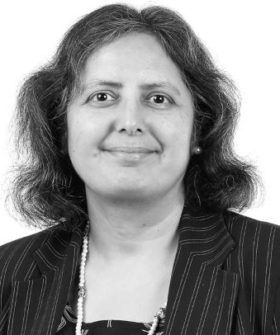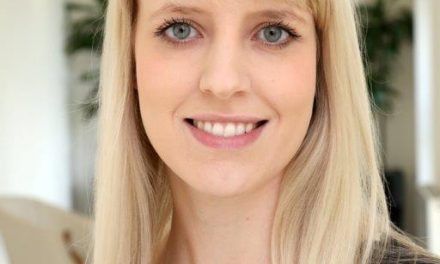I have been honoured to sit on Middle Temple Scholarship interview panels since 2020. This is a voluntary role where I have been one of three members of an interview panel, who are very ably assisted by Middle Temple staff.
I was interested in the role, firstly because I want to give back in terms of my time and commitment to the Inn and to those starting out and aspiring to join the legal profession. Secondly, I applied for a Middle Temple Scholarship over 20 years ago and know how it feels to go through the process. I did not get a Middle Temple Scholarship but that did not stop me progressing in my legal career. Whilst receiving a scholarship is a great achievement, not receiving one is not determinative of whether a person can be a successful lawyer. I have noticed that the application and interview process has gone through some changes over time and the interview panels are far more diverse, in terms of gender, sexuality, race, class and other protected characteristics.
What must be borne in mind is that some course providers offer awards and scholarships, which candidates can also apply for. Similarly, loans are available, for example the postgraduate loan, commercial loan providers, and some LEA grants.
Middle Temple has aimed to ensure that those with talent and ability receive recognition, but also that those talented people in most need receive an award. There is a finite sum of money to be distributed in respect of each scholarship interview exercise.
The Training
Before starting in my interview panel member role, I attended the ‘Scholarship Interview Training’ organised by the Council of the Inns of Court (COIC). This training was comprehensive and separated over two parts.
Part one of the training covered a small amount of law applicable to carrying out scholarship interviews and input on how unconscious and implicit bias might affect the process. The training then moved to consider the interview process, focusing on the ‘behavioural’ style of interviewing as opposed to the more traditional form of posing questions based on the information given on an application. This training also included developing techniques for writing effective interview questions.
The second part of the training was devoted to role play. For this aspect, scholarship applicants who had been successful in that year’s applications volunteered as our ‘guinea pig applicants’. The course participants were able to read the scholarship applications in advance of the training session. In a group, my two fellow panellists and I discussed the questions we would ask and how to formulate them, as well as the format of how to conduct the mock interviews. At the end of the mock interviews, we gave and received feedback. This exercise was very useful in understanding the process of a scholarship interview, working with fellow panellists, considering information in the application forms and making sure that the process is open and fair.
Pre-interview Preparation
The dates of the Middle Temple Scholarship interviews are circulated to volunteer interviewers by the Inn. The time commitment entails either two or four days, which can be during weekdays and/or during weekends or a combination of both.
The completed candidate scholarship applications are circulated to the panel in advance and I set aside time to read through each application.
The interview panel members then get together in advance of the scholarship interviews to: a) meet each other, sometimes that has not happened before and we are strangers to each other; b) agree the format of the interview; and c) agree the questions.
The Scholarship Interviews
The interviews are approximately 15 minutes long for each candidate. The panel aims to keep to the 15 minutes to ensure there is fairness for all candidates.
There is usually one consistent panel member who undertakes the brief introductions at the start of the interview. The interview questions, usually four, perhaps with some follow up questions, are rotated between the interviewers.
There are mark sheets which the panel members complete after each interview and there is discussion at a midway point, or this can be at the end of the day, this varies between panels, to consider and note each interviewer scores and the combined scores for each candidate. This is an opportunity to moderate, reconsider, re-evaluate scores, if needed, as some panel members may be overly generous markers and others not so much.
The criteria we consider are based under four headings: Intellect, Motivation, Potential Advocate, and Personal Qualities. The format of the interview is to give the candidate as much opportunity to answer questions as possible.
Post-interview
This is an intense process of collating all the candidates’ overall total scores. After it is established how much money is in the pot for distribution, the panel completes the overall, detailed mark sheet and the award sheet. The remote video interviews are recorded and retained for a set period, compliant with GDPR guidelines in case of any concerns about technical difficulties.
Some tips
The application form is the opportunity for a candidate to provide as much information as possible to the interview panel. Given that each interview is usually only 15 minutes long, I would suggest that the form is carefully completed and constructed providing clear information, being full, frank and honest. Sometimes very relevant information is provided during an interview that was missing from the form and could have been overlooked had it not been mentioned during the interview.
Candidates are given clear guidance about the Middle Temple Scholarships process and other options for accessing financial support. A real plea to candidates is to complete the finance income/outgoings and needs portion of the form correctly. Some forms are completed with incorrect financial information from the candidates, leading to further questions and queries during the interview and the panel having to undertake financial calculations, which is something the candidate should have done. This portion of the form should be completed very carefully and honestly.
During the interview, aim to give clear and focused answers to questions. The interview is time limited and whilst the panel does not want to cut a candidate off mid-stream, sometimes that is necessary to move the conversation along as there are set questions to go through for each candidate and the process needs to be fair for everyone.
One of the questions the panel asks is the candidate’s own question that they would like to be asked, which is set out in the application form. This is an ideal opportunity to shine, and I suggest candidates carefully consider the question. Do not waste this opportunity. Sometimes a very long-winded question is put down, or it can be a very brief question already covered and answered by the candidate in another section of the form.
The scholarship interviews over the last two years have been conducted remotely by video link format. The usual dos and don’ts are as follows; ensure you have sufficient broadband and a device that you can use to join the remote interview, ensure your video and microphone settings are working and that you can be seen and heard. A complete a trial run with a friend or family member can be a good opportunity to check that all systems are go!
Remote video scholarship interviews can be challenging as some of the usual body language cues and nuances can be missing, so speaking clearly and not moving around too much are important. Having drinking water and other essential props to hand is helpful. Do some forward thinking and preparation to ensure that you have everything to feel comfortable and relaxed before the interview begins.
Most importantly of all, enjoy the process and aim to be yourself. At best you will be the recipient of a scholarship and failing that you will have the opportunity to meet some barristers and/or Judges and experience an interview process. All interviews are an experience which can help you grow, develop and improve.
Finally, good luck to everyone that goes through a scholarship interview.

Poonam Bhari was Called to the Bar in 1999 and practices at 3PB in all aspects of family law, with experience in complex public law proceedings, private law applications, international child law and financial remedy applications.





